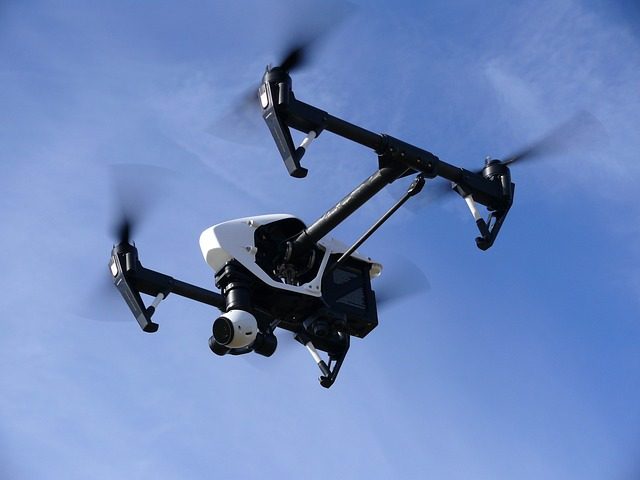
News and Commentary. Last week, the NTIA – a division of the Department of Commerce – released a suggested framework of best practices for drone privacy. At first glance, the list seems to be based on good manners and common sense; the same sort of thing that you might tell your teenager when giving them a smartphone for the first time. Rules for drone privacy: don’t take pictures of people without their permission, don’t sell pictures of people without their permission, don’t take embarrassing photos of people anywhere they might reasonably expect privacy, like a bathroom or a locker room, don’t encroach on private property without an excellent reason. (The original 8-page document can be found here.) But common sense or not, there are arguments against publishing “drone privacy” documents at all.
Proponents of Drone Privacy Best Practices
Some drone industry stakeholders – like Amazon – hope that this list of voluntary best practices will serve as a buffer between regulators and drone operators, preventing a more official – and possibly more limiting – framework of regulations.
The Consumer Technology Association, for example, released a statement in support of the best practices document: “The notion of enacting prescriptive rules at this stage would threaten the broad array of benefits drones offer us – from the delivery of live-saving medical supplies and disaster relief to more efficient crop production and safer infrastructure maintenance – without any corresponding increase in privacy,” said the statement, attributed to Alex Reynolds, CTA’s director of regulatory affairs. “Instead, stakeholder efforts to develop best practices on a voluntary basis prove that consumer advocates, government and the tech industry are committed to building sustainable privacy practices into drone products and services.”
Some consumer and privacy advocates like the Center for Democracy and Technology (CDT) also praised the document. “These best practices are an incredible example of the progress that can be made when civil society, the government, and businesses work together to find solutions,” Chris Calabrese, CDT’s Vice President of Policy said in his statement. “Hopefully the broader drone industry and hobbyists alike will embrace these best practices.”
The Arguments Against
Not everyone was thrilled with the results. On the privacy side, the ACLU says that the best practices are too vague and don’t go far enough; they have published a three page letter of requested changes.
The newly formed Drone Manufacturer’s Alliance, which included DJI, GoPro, 3DR, and Parrot has also refused to sign off on the guidelines, USNews reports. The alliance objects on a more basic foundation: if anyone carrying a camera (like the above referenced teen with a smart phone) isn’t required to sign off on privacy best practices, why should drone operators be singled out?
It’s a good point. The hype over drone privacy is based largely on the fear of something new. Those who claim that a drone has a new and terrifying potential for invasion forget that telescopes, helicopters, helium balloons and long-range cameras have existed for a long time without any greater disaster. Cell phones and tablets with cameras are far more ubiquitous – and likely to cause embarrassment.
While few stakeholders in the drone industry wish to see more official drone privacy regulations enacted, the drone community may argue against any system – voluntary or not – that singles them out for rules that should reasonably apply to anyone with a camera.

Miriam McNabb is the Editor-in-Chief of DRONELIFE and CEO of JobForDrones, a professional drone services marketplace, and a fascinated observer of the emerging drone industry and the regulatory environment for drones. Miriam has penned over 3,000 articles focused on the commercial drone space and is an international speaker and recognized figure in the industry. Miriam has a degree from the University of Chicago and over 20 years of experience in high tech sales and marketing for new technologies.
For drone industry consulting or writing, Email Miriam.
TWITTER:@spaldingbarker
Subscribe to DroneLife here.







[…] post Drone Privacy Regulations: Common Sense or Unfair? Why Some Companies Refuse to Sign On appeared first on […]